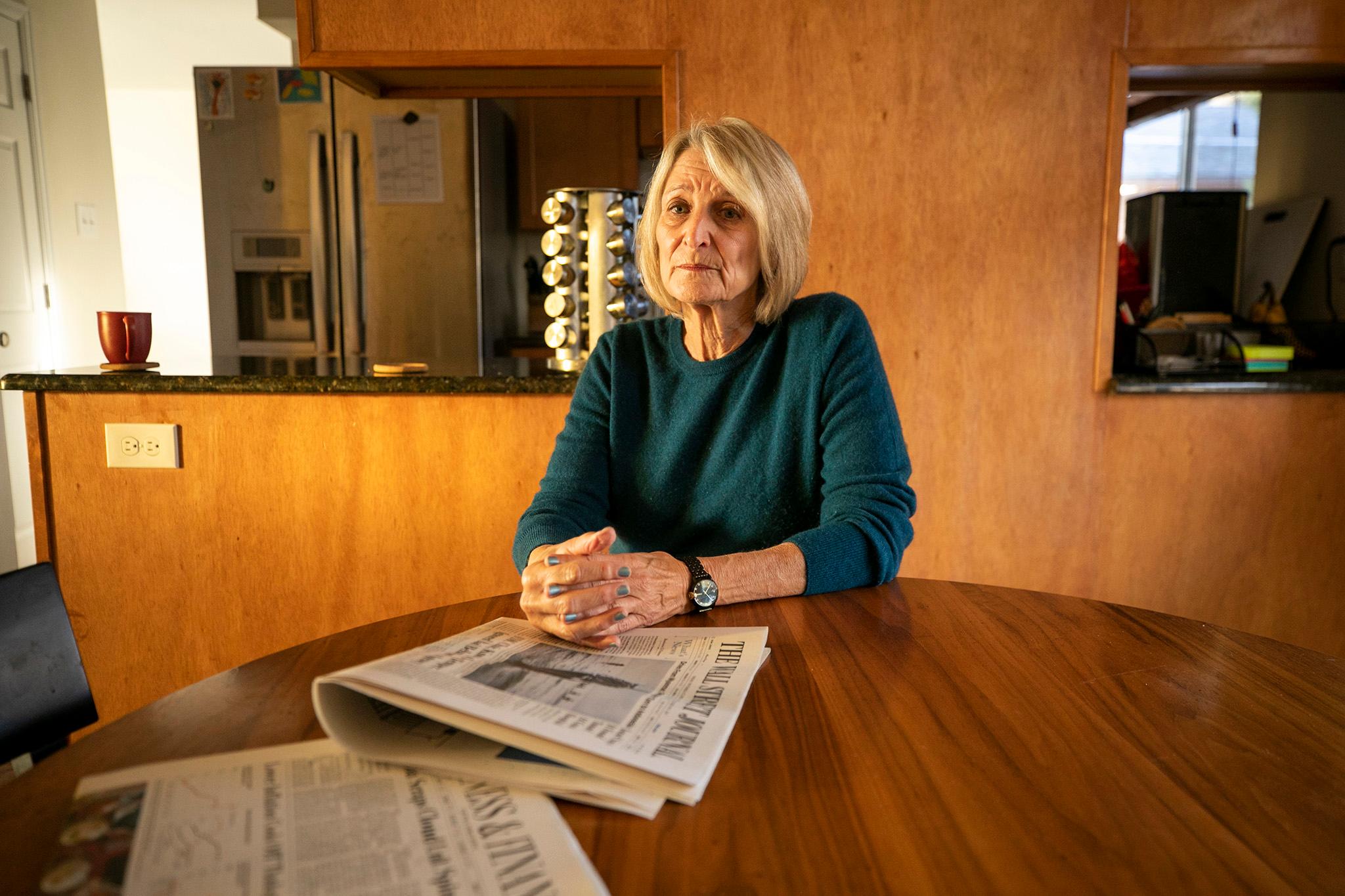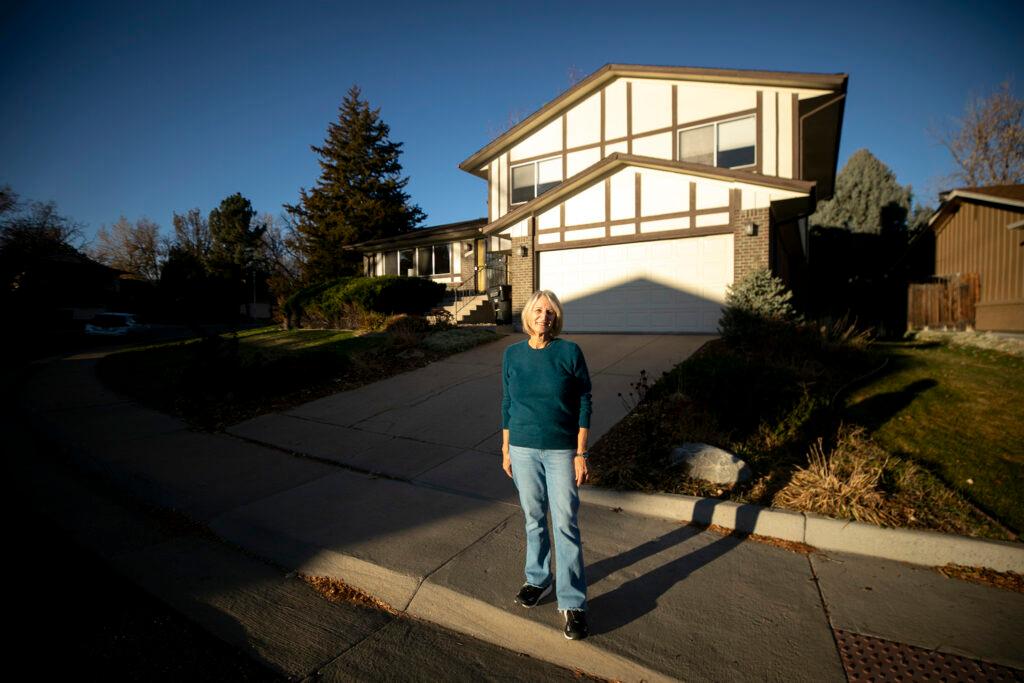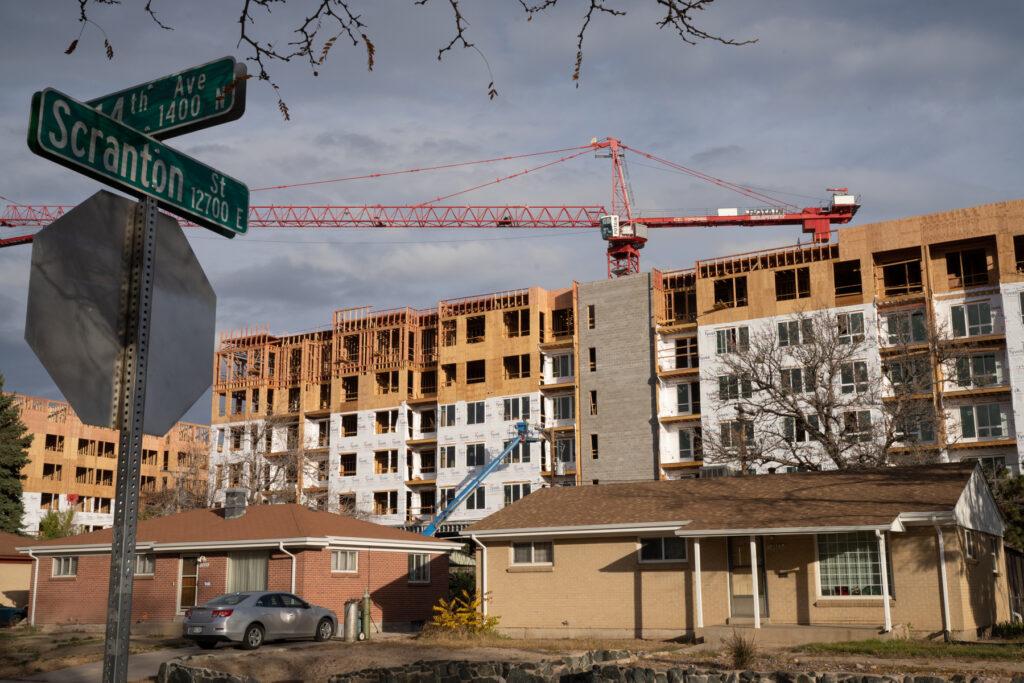
By Parker Yamasaki, The Colorado Sun
There’s a catchall phrase that’s been tossed around as parody for decades, but feels increasingly earnest: In this economy? As in:
Go out to eat, in this economy?
Go to a concert, in this economy?
Get a Christmas tree, in this economy?
It’s not just you. Thousands of Coloradans have responded to the statewide Voter Voices survey, an effort by more than 60 newsrooms, including CPR News, to break from horse-race reporting and cover the upcoming election in a way that truly serves our readers.
The survey asks participants to rank the top three issues that they want to see candidates address from 13 categories, along with an open-ended question at the top of the survey: “What do you want candidates to talk about as they compete for your vote?”
As of May 28, 4,558 Coloradans had taken the survey. Nearly 15 percent said that the economy was the No. 1 issue that they want to hear about in the coming months, ranking second behind “democracy and good government,” which 40 percent of participants consider the biggest issue.
The economy and cost of living were ranked as the most important issue among voters ages 18 to 29 and conservative voters in rural regions. Groups that ranked the economy as the second-most important issue include voters ages 30 to 44 and 45 to 64; male voters; voters in the 1st, 3rd, 4th, 6th and 8th Congressional Districts; conservative voters; moderate voters; and voters in urban, suburban and rural regions of the state.
In other words, Coloradans from every political party, every region and just about every age group are feeling pressure from the economy, and they want politicians to do something about it.
“Automobile insurance, homeowners insurance, taxes and God-awful groceries,” said Theresa Springer, a 65-year-old rancher who lives in Hartsel in rural Park County. “Everything just went way, way high.”
The biggest concern
As The Colorado Sun has explored in its ongoing series, “The High Cost of Colorado,” high prices dig into every part of Coloradans’ pocketbooks — from housing to groceries to going outside. It makes sense that high costs would be on voters’ minds. But “the economy” is a broad topic, so we looked at the open-answer question and called up respondents to see what exactly about the economy feels the most burdensome.
One clear concern emerged: housing.
Breaking down that subcategory, we heard about insurance, property taxes, affordable housing complexes (with tie-ins to density around public transportation), maintenance costs, rent costs and making it easier to build multi-generational homes.
What goes up, stays up
One of the concerns that most homeowners brought up was the high cost of insurance. Pam Giordano, a 77-year-old part-time teacher, has owned her home in Denver for about 30 years. Her homeowners insurance went up 22 percent this year, she said. She’s not sure about her car insurance bill yet. “I'm afraid to open it,” she said.
Giordano said that she’s called her homeowners insurance company to try to negotiate the price down, but the company is stuck citing the crime rate in her neighborhood (Giordano listed “crime” as her second most important priority for candidates to address).
“If the crime rate in Denver goes down, I'm quite sure my homeowners insurance reps aren’t gonna say, ‘Oh, Pam, crime is down 10%. We're gonna charge you 10% less.’ I don't believe that's going to happen.”
She’s right. For what it’s worth, crime is down in Denver, though it’s still higher than before the pandemic began in March 2020.

These conversations leave Giordano, and many others, feeling the pressure no matter how hard they pinch pennies.
“Yes, you can spend less at the grocery store. Yes, you can spend less on entertainment. Yes, you can spend less on streaming services and things,” Giordano said. “But the big hits, in many ways, are not things you can control.”
Feeling stuck
Several of the survey respondents contacted — homeowners and renters alike —said they feel “stuck” with regard to their housing.
Giordano raised two kids in her home in Denver. It has bedrooms she and her husband don’t need, and it’s located in a neighborhood she’s not happy with anymore. But when they looked into moving, the couple faced a hard reality.
“It would literally cost us double to move with housing expenses today,” she said. “So, you know, we're kind of locked into where we are. It’s a situation that a lot of people in our demographic deal with.”
In fact, it’s a situation that a lot of people in every demographic deal with.
Elianna Patridge, a 20-year-old about to graduate from the University of Denver, wants to move out of her mom’s house. They’re close, she said, and it was a good situation while she was in school.
“But I don't want to live in my mom's house forever,” Patridge said. “And I don't really want to live in the suburbs anymore, there's not a whole lot of stuff here for people my age. I want to be able to move into the city and live in Denver, but rent in the metro area is just crazy, crazy expensive. I’m trying to figure out: Will I be able to afford to move out? And it's like, it doesn't seem so.”
Patridge said that she and her mom talk openly about their options: Should her mom rent out Elianna’s space once she moves out? Should they both move into Denver and rent out their current home? Should they live in Denver together?
“I don't think that would be my ideal, just because I do want to launch and have my own place,” Patridge said, of the last option. “But she and I are very tight and we do enjoy the company a lot, so I definitely would not hate it if we did that.”

Building up and out
When it comes to building new housing, a lot of respondents were eyeing the prohibitively expensive, time-consuming permit processes — the red tape.
“I don't really see the housing issue as a problem of scarcity. I see it as more of a legislation problem,” said Keenan Marrinan, a 28-year-old voter who grew up in Boulder. “We have all these policies that are in our way of building more houses. It's not that we can't build more houses. I mean, after the Marshall fire, it took about a year to get all those houses rebuilt. But then when it comes to building any affordable housing, it takes multiple years to get anywhere. So I really think that’s something that we can change on the back end.”
Meanwhile, Springer, the rancher in Hartsel, is also frustrated by the difficulty of making improvements to her home, where she has lived for more than 30 years. She’d love to make improvements for her grandchildren to take over the house someday.
“All of a sudden this house that's grandfathered in has to meet all these new building codes,” she said. “It’s almost impossible.”
Springer raised six children in the house. One of her sons still works on the ranch, on top of a full-time job, she said. Her desire to pass along her home is more than just a generous economic move — it signals the continuation of her way of life, that of a small cattle ranch that hasn’t “sold out to the multimillionaires,” as she put it. “We're not gonna do that.”
“It used to be that you sat down (each season) and said OK, this is how we're going to make it work,” Springer said. “Now we look at the numbers and don't even get past car payments.”
Making it work
Other issues frequently cited in the open-answer question were medical costs, inflation, grocery prices and taxes.
While some issues were clearly divided along party lines — social justice and equity ranked as the fifth most important issue for liberal voters, but came in dead last among conservatives — the majority of issues weren’t cleanly divided among parties, genders, regions or age groups.
Despite his deep concerns about the cost of living, Marrinan, the voter born and raised in Boulder, was optimistic.
“People say that there's too many people moving here. But that's more income for our state. We can support those people. Growth is hard, change is hard, especially when nationwide everything is more expensive,” he said. “But if we do it correctly, then it'll be even better. In a decade or so, if we expand in a good way, things will be amazing, I think.”You can still take part in the survey. Learn more and fill it out at this link, we’d love to hear from you.









